Uncategorized
-
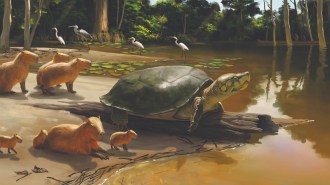 Paleontology
PaleontologyAn extinct sofa-sized turtle may have lived alongside humans
Peltocephalus maturin was one of the biggest turtles ever, but unlike similarly sized prehistoric freshwater turtles, it lived thousands of years ago.
By Jake Buehler -
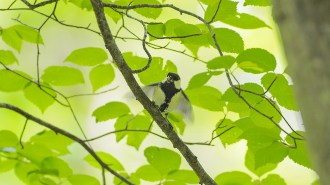 Animals
AnimalsBy fluttering its wings, this bird uses body language to tell its mate ‘after you’
New observations suggest that Japanese tits gesture to communicate complex messages — a rare ability in the animal kingdom and a first seen in birds.
-
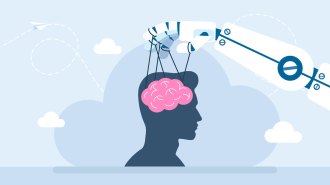 Artificial Intelligence
Artificial IntelligenceAI learned how to sway humans by watching a cooperative cooking game
New research used the game Overcooked to show how offline reinforcement learning algorithms could teach bots to collaborate with — or manipulate — us.
-
 Neuroscience
NeuroscienceDogs know words for their favorite toys
The brain activity of dogs that were expecting one toy but were shown another suggests canines create mental concepts of everyday objects.
-
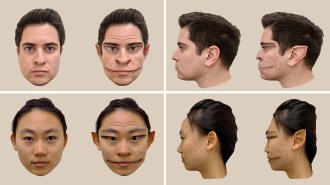 Health & Medicine
Health & MedicineHere’s what distorted faces can look like to people with prosopometamorphopsia
A patient with an unusual variation of the condition helped researchers visualize the demonic distortions he sees when looking at human faces.
By Anna Gibbs -
 Humans
HumansThese are the chemicals that give teens pungent body odor
Steroids and high levels of carboxylic acids in teenagers’ body odor give off a mix of pleasant and acrid scents.
By Skyler Ware -
 Psychology
PsychologyTimbre can affect what harmony is music to our ears
The acoustic qualities of instruments may have influenced variations in musical scales and preferred harmonies.
-
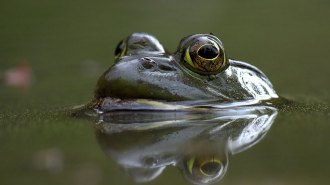 Animals
AnimalsAmerican bullfrogs may be threatening a rare frog species in Brazil
A search for environmental DNA from critically endangered Pithecopus rusticus frogs turned up DNA from invasive American bullfrogs instead.
-
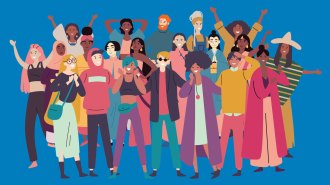 Science & Society
Science & SocietyNot all cultures value happiness over other aspects of well-being
Nordic countries topped the 2024 world happiness rankings. But culture dictates how people respond to surveys of happiness, a researcher argues.
By Sujata Gupta -
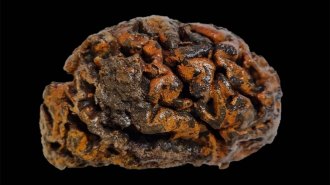 Archaeology
ArchaeologyHuman brains found at archaeological sites are surprisingly well-preserved
Analyzing a new archive of 4,400 human brains cited in the archaeological record reveals the organ’s unique chemistry might prevent decay.
-
 Physics
Physics50 years ago, superconductors were warming up
Superconducting temperatures have risen by about 250 degrees since the 1970s, but are still too cold to enable practical technologies.
-

How patient-led research is advancing science
Editor in chief Nancy Shute considers the role that people suffering from a variety of chronic conditions are starting to play in medical research.
By Nancy Shute